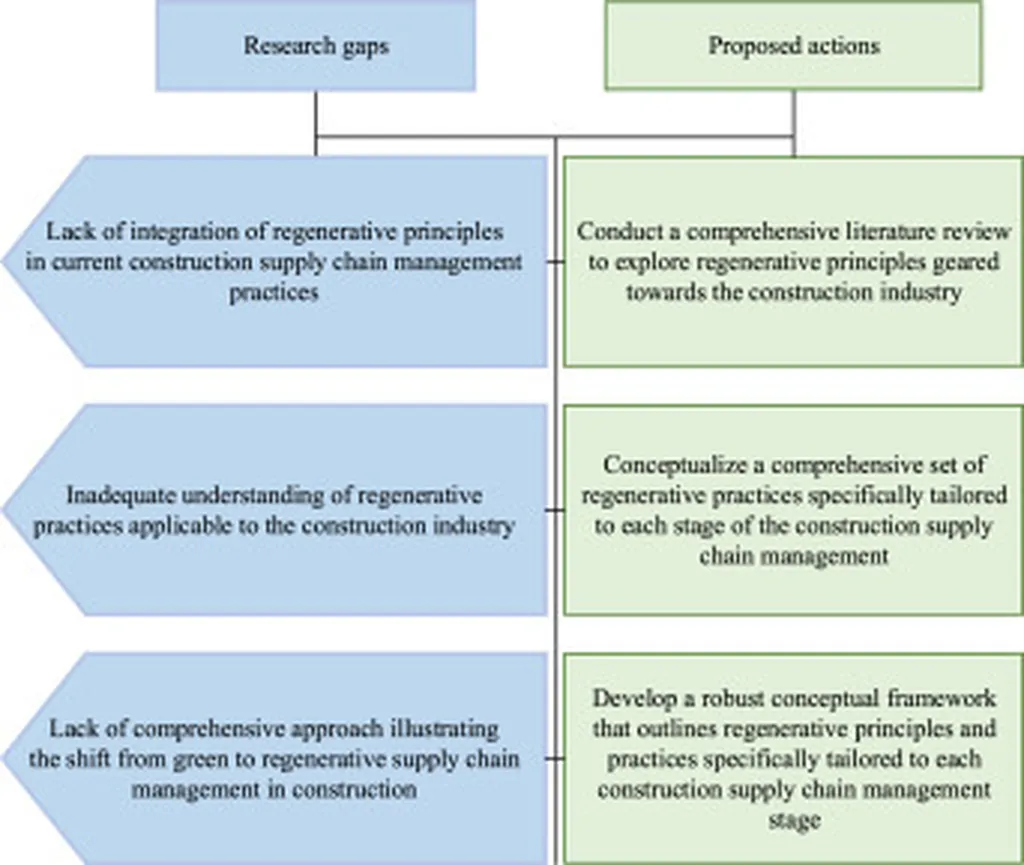In the heart of Baghdad, a groundbreaking study is set to reshape the way the construction industry approaches sustainability, with potential ripple effects across the energy sector. Ameer Kadhim Abdul Zahra, a researcher from the Department of Civil Engineering at the University of Baghdad, has proposed a structured framework for green procurement within Green Supply Chain Management (GSCM), aligning sustainability principles with project management standards outlined in ISO 10006:2017.
The construction sector, known for its significant environmental footprint, is increasingly under pressure to adopt greener practices. Abdul Zahra’s research, published in the *Journal of Engineering* (translated from Arabic as “مجلة الهندسة”), offers a strategic approach to integrating sustainability into procurement practices, a critical component of the supply chain.
Abdul Zahra’s study began with a thorough literature review to identify key factors influencing green procurement. These factors were then refined through an open-ended questionnaire administered to industry professionals. Based on their feedback, a closed-ended questionnaire was developed and distributed to 73 experts in procurement and supply chain management. The responses were analyzed using a five-point Likert scale, revealing the most influential factors for effective green procurement.
“Quality control of material, certified suppliers, and purchasing non-toxic and eco-labeled materials emerged as top priorities,” Abdul Zahra explained. “Supplier audits, selection, and specifications, along with ISO 14001 certification, were also identified as crucial elements.”
The study’s findings have led to the development of a comprehensive framework that links each factor to relevant project stakeholders and phases outlined in ISO 10006:2017. This framework aims to enhance procurement performance and promote sustainable, interoperable supply chain practices.
The implications of this research extend beyond the construction sector. As the energy sector increasingly relies on large-scale construction projects, the adoption of green procurement practices can significantly reduce environmental impacts. “This framework provides a roadmap for industries to align their procurement practices with sustainability goals,” Abdul Zahra noted. “It’s a step towards a greener future.”
The proposed framework could shape future developments in the field by setting a standard for green procurement practices. As industries strive to meet sustainability targets, this research offers a practical tool to integrate environmental considerations into procurement decisions. By doing so, it paves the way for a more sustainable and interoperable supply chain, benefiting both the environment and the bottom line.
In an era where environmental conservation is paramount, Abdul Zahra’s research serves as a beacon for industries seeking to balance economic growth with ecological responsibility. As the energy sector continues to evolve, the adoption of such frameworks could be a game-changer, driving innovation and fostering a culture of sustainability.

